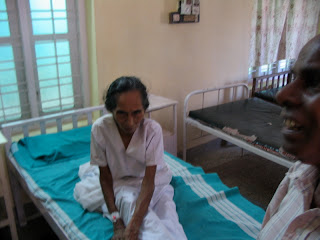
On Sunday, Bishop Itty preached at his boyhood church, St. Stephens.
It's Monday afternoon. We're spent, existing on prayers and a flash of adrenaline
(anticipating the trip home).
Mary came down with a stomach bug this morning. Joe's not feeling so hot, either. (Something we ate?)
Our flight leaves in 8 hours. Twenty-seven hours across the ocean. Look for a complete download of the trip in the coming days. See you in Oregon ...
PEACE







 -- allowing the diocese to continue funding health-care programs for the area's poor.
-- allowing the diocese to continue funding health-care programs for the area's poor.








































